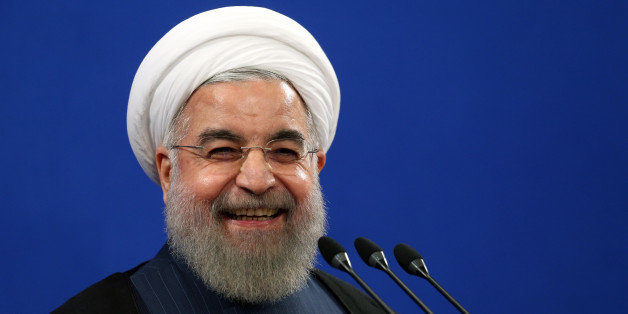Rouhani inauguration to signify Iran’s global status

TEHRAN – Iran will once again will put on display its international importance as it will be hosting eight presidents, 19 parliament speakers, and dozens of high-profile officials in in the swearing-in ceremony of Hassan Rouhani as president for a second time.
Parviz Esmaili, the communications director at the presidential office, said Tuesday that at least 92 high-ranking foreign delegations will attend Rouhani’s swearing-in ceremony.
Esmaili added nine vice presidents and prime ministers, seven parliament vice speakers, 11 foreign ministers, 12 deputy foreign ministers, 35 special envoys and six heads of parliamentary friendship groups will be among the foreign guests at the ceremony.
Rouhani, who sworn in for his first term on August 4, 2013, was re-elected in the May 19 election in a landslide, garnering 57 percent of the votes.
Rouhani’s swearing-in ceremony will be held at the parliament on Saturday, August 5.
Iran has ramped security measures for the upcoming event. The Interior Ministry has declared Saturday a holiday in Tehran.
Officials from Germany, France, Britain, Russia, and China who struck the nuclear deal with Iran will attend the swearing-in ceremony
Alireza Rahimi, a lawmaker, said the ceremony would be unprecedented in Iran’s history in terms of the number and ranks of the foreign dignitaries participating.
He noted that the turnout in the event would send “an important message” to the world, especially at a time when the United States is seeking to unite the world against Iran.
Russia, Britain and China would be represented by their vice president, deputy foreign minister and deputy prime minister, respectively, while France and Germany would be participating at the level of assistant foreign minister, Rahimi said.
The parliamentarian added that European foreign policy chief Federica Mogherini will also take part in the ceremony, showing the EU’s resolve to preserve and strengthen ties with Iran.
During Rouhani’s first term, Iran reached a historic nuclear agreement, officially known as the JCPOA, which put some restrictions on Tehran’s nuclear program in exchange for termination of economic and financial sanctions. The other parties to the deal were the U.S., Russia, China, France, Britain, and Germany.
Rouhani was also Iran’s chief nuclear negotiator from 2003 to 2005. His leading role in the nuclear negotiations as well as his clerical background won him the nickname of “the sheikh (cleric) diplomat”.
In his presidential campaign, Rouhani promised to reap the benefits of the nuclear agreement and bring faster economic progress to satisfy the people.
Since Donald Trump became president of the United States, Washington has taken a hostile stance towards the accord. The EU member states, however, stress the necessity of staying committed to the JCPOA.
MH/PA
